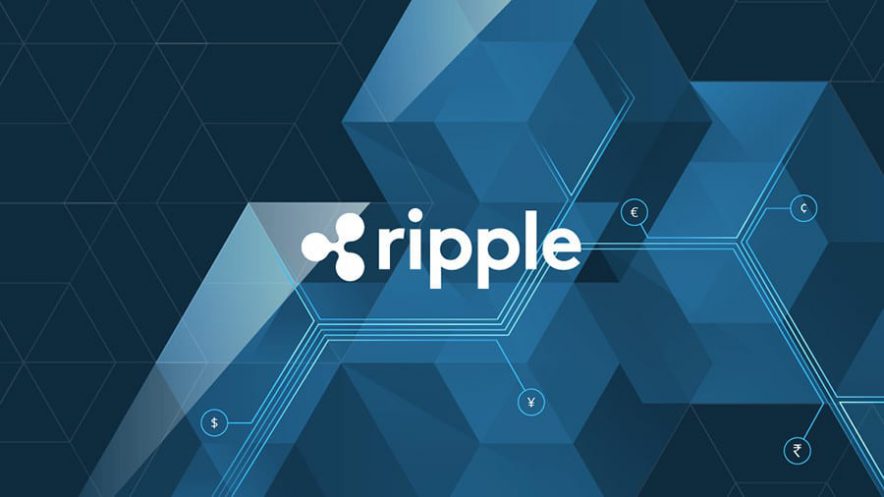
How Ripple is helping banks adopt blockchain
You may have heard the hype, or more recently the warnings about Bitcoin and blockchain technology. After all, the market has taken a dramatic downturn in recent months while somewhat nefarious projects have also taken advantage of investors.
In fact, media and government are often quick to distribute these warnings but at the same time, the above mentioned hype is anything but speculation. That is to say, not every project can be trusted in the cryptocurrency market but there are certainly diamonds in the rough and major financial institutions are now starting to adopt this new technology.
Cryptocurrency and the Emergence of Blockchain
With this in mind, although cryptocurrency is still largely ignored by the general public, the concept behind this market, blockchain, may be the most significant technology since the emergence of the internet. In this sense, while Bitcoin and other cryptocurrencies are often the subject of criticism, it is widely accepted that blockchain technology will feature prominently in the future of every industry.
In the case of electronic currency, blockchain enables peer to peer transactions without the need for a middleman. In other words, cryptocurrency can be transacted without the higher fees and wait times often associated with traditional methods. These transactions are recorded on a public ledger, the blockchain, which provides transparency and a degree of anonymity to the users.
In case you might be wondering, “middlemen” refers to banks, credit cards and other third-party payment processors.
Volatility, Ripple, and a Centralized Blockchain
As you may know, cryptocurrency is mostly decentralized which means there is no central organization in control. Simply put, the value derives from the volume and frequency of use.
On the other hand, the most notable exception in the cryptocurrency market is Ripple and the XRP token. Ripple is a settlement system which issues a token known as XRP and this is the only “cryptocurrency” which utilizes a centralized blockchain.
More on that later.
As already mentioned, there are concerns over the future of Bitcoin and cryptocurrencies as a whole. For example, when the market reached all-time highs in the month of December, prices began to retrace and continue spiraling into a market crash. Indeed, the market is fully expected to recover but mainstream adoption is unlikely to happen any time soon.
On the other hand, Ripple and the XRP token have taken immense strides in the past few months and continued to surpass expectations by announcing partnerships and test-runs with many prominent financial institutions such as American Express, Western Union, Money Gram and more.
What is Ripple and What You Need to Know
Ripple is an electronic settlement system which enables value to be transferred instantaneously from one party to another. Unlike traditional methods, this value can relate to any type of currency and a large number of assets such as gold. Although the purpose of this system was to negate the middlemen, global leaders in the banking industry have taken a particular interest in Ripple and centralized nature of this process.
Mainstream institutions have taken a great deal of interest in Ripple and feel assured in terms of the stability of the company. Interestingly, banks and financial institutions have taken significantly more interest in Ripple and sought to employ this system within their respective organizations.
As with other cryptocurrencies, Ripple has created a system which reduces fees and wait-times. The blockchain can process more than 1,500 transactions per second and equipped to exceed the capabilities of major credit cards such asVisaa and MasterCard.
For this reason, major financial institutions began testing the Ripple system and investing in the prospect of using the XRP token to remit money both locally and across international borders.
Ripple’s system combined with this token is already proving to be one of the fastest and most reliable means of transacting value.
The Internet of Value and Future of Ripple
As you can see, there are very plausible reasons as to why Ripple is gaining so much exposure and acceptance with major institutions. In fact, the Internet of Value refers to a worldwide vision for Ripple and a mission to create a system on which value can be exchanged just as quickly as information. With this in mind, we can see why banks and financial institutions are taking so much interest in the system created by Ripple but at the same time, there is genuine potential for XRP.
While Ripple continues to break ground in blockchain technology, there are still a lot of problems when it comes to credit card processing. Every day, businesses are dealing with high rates, negligent customer support and broken payment solutions.
Preferred Payments is also making major strides in the solving the issues that are closer to home for both individual entrepreneurs and big business. To find out how Preferred Payments can simplify and improve your payment solutions, click here to book a free strategy session with a dedicated account manager
Ready to get started?
Get in touch or create an account





